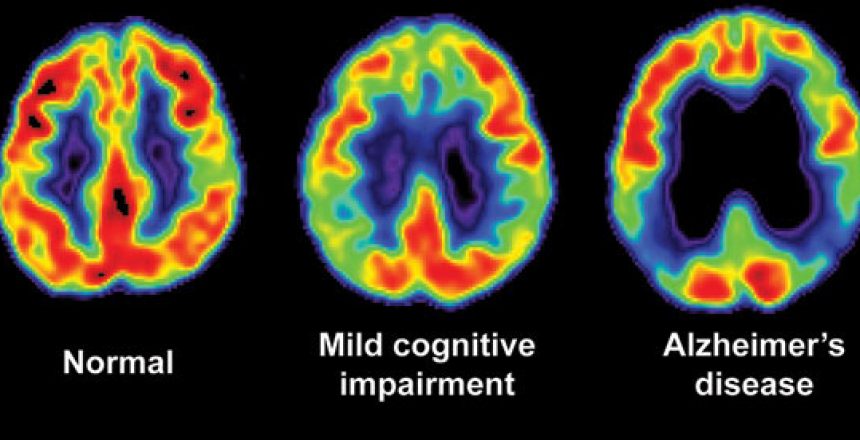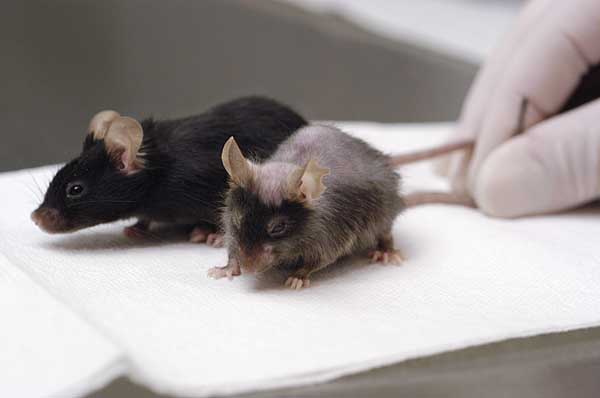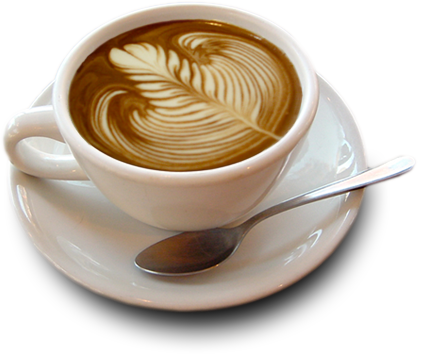Intermittent fasting, or going without food for some period of time, has many benefits.
Fasting lowers the level of the hormone insulin, which then allows fat-burning to take place. Weight loss is one of the reasons that intermittent fasting has garnered so much attention of late. Another reason it’s so healthy is that fasting cleans the brain. Let me explain.
Food causes profound physiological effects
The body tightly controls energy use and storage. When we eat, the body responds with various hormonal and biochemical effects, among them an increase in the hormone insulin and activation of the growth mechanism mTOR (mammalian target of rapamycin). It does this so that food energy can go to the right places, whether storage or for immediate use, and so that the body can replenish itself by building new structures.
When this system goes awry, for instance by frequent eating (“grazing”) or by ingestion of lots of refined carbohydrates, the body preferentially stores more energy and obesity can result.
In contrast, not eating food also has profound effects, such as deactivation of mTOR, lowering of insulin, and activation of the energy-sensing network AMPK.
The most prominent and important effect of fasting is an increase in autophagy, the cellular self-cleansing process.
Autophagy and why it’s important for health and lifespan
Aging is the outcome of a contest between damage and repair.
Damage occurs for many reasons, but most importantly as a consequence of living and burning energy. While the analogy between an aging body and a used car isn’t perfect, in the respect of damage, they are similar. Using them wears them out.
The difference between a living thing (including a human) and an automobile is that the living thing is capable of repairing itself. It periodically breaks down pieces of its machinery that are past their expiration date and replaces them. For example, the average red blood cell lasts only 120 days before it’s removed and replaced by a new one.
Autophagy is the means by which the body removes misfolded and aging proteins, organelles such as mitochondria, and generally keeps up cellular housekeeping by removing and replacing damaged parts.
Eating food all but stops autophagy; fasting strongly increases it. With this it can be seen that autophagy is a cyclical process, rising and falling on a daily or even hourly basis. In humans, autophagy strongly increases with overnight fasting during sleep.
Autophagy also declines in aging; that is, a given stimulus produces less autophagy in an older than a younger animal.
Because of the decline in autophagy with age, damage accumulates. If we were to have the ability to strongly increase autophagy, much of the damage could be repaired.
All interventions that increase lifespan in lab animals also increase autophagy. This fact is critical. Animals that have been engineered to have low or no autophagy do not see an increase in lifespan with calorie restriction, rapamycin, resveratrol, reduced insulin signaling, anything. I’m not aware of a single exception.
Clearing damage from the brain
Fasting intermittently strongly increases autophagy. In normal animals including humans, going without food for a few hours increases this process; in aging animals, longer periods of fasting may be necessary.
While the effect of fasting on the liver, muscles, and other organs has been well-known, until recently it was thought that this did not occur in the brain.
But scientists have recently shown that short-term fasting induces profound neuronal autophagy. Mice that were fasted for 24 hours showed an increase in autophagy in the brain, and this effect increased after 48 hours of fasting. The authors of this study discuss its implications for human health:
Our observation that a brief period of food restriction can induce widespread upregulation of autophagy in CNS neurons may have clinical relevance. As noted above, disruption of autophagy can cause neurodegenerative disease, and the converse also may hold true: upregulation of autophagy may have a neuroprotective effect… it has been suggested that intermittent fasting might improve neuronal function by means that are entirely independent of caloric intake, and may instead reflect an intrinsic neuronal response that is triggered by fasting… Food restriction is a simple, reliable, inexpensive and harmless alternative to drug ingestion and, therefore, we propose that short-term food restriction may represent an attractive alternative to the prophylaxis and treatment of diseases in which candidate drugs are currently being sought.
How long does one need to fast to elicit this effect? In this study, 24 hours sufficed to double the number of autophagic vacuoles in neurons, and 48 hours increased them another ~50%. However, 24 hours is a long time for a mouse, and a human could conceivably need longer.
But, 16 to 20 hours of fasting in a normally healthy human is enough to drop insulin greatly and as a consequence increase autophagy. Fasts like these are relatively easy, since your sleep time counts. If you don’t eat after dinner, say 6 P.M., and then don’t eat until noon the next day, you’ve just fasted 18 hours.
Intermittent fasting as an anti-aging strategy
Intermittent fasting as an anti-aging strategy is central to my book Stop the Clock.
Aging means a decline in autophagy and a consequent increase in molecular damage. By fasting intermittently and periodically, autophagy can be increased and molecular damage repaired.
The brain also might be repaired in this way, as this study shows.














29 Comments
Somewhat OT:
We know that eating a lot of sugar is bad because of glycation (due to high blood sugar levels) and increased insulin response and other effects.
However, those destructive mechanisms all result from “meal-type” sugar absorption, in the form of eating a lot of sugars in a short time; the sugar absorption and processing cannot be reduced or slowed down by available metabolic mechanisms and the result is a temporary sugar overload in the blood, which then leads to most of the detrimental effects.
I wonder if the negative impact of sugar on health is lower or even absent if it is consumed very slowly;
say, an average guy (all other nutrients left aside) needs 10MJ of food-derived energy per day; that corresponds to 625g sugar per day. If he eats that at once in a short time, his blood sugar levels will become dangerously unhealthy.
But what would happen if he consumed this daily sugar ration in perfect equilibrium with his energy needs? It seems impracticable, but theoretically he could spread those 625g evenly over a 24h-period and and only would absorb 0,43g of sugar per minute (maybe in form of a pill per minute or an IV drip).
The effect on blood sugar levels and insulin should be negligible, because the amount of sugar “burnt” is equal to the sugar supplied and absorbed, no metabolic “sugar overload” should happen.
Could sugar be rendered harmless if its speed of absorption could be delayed greatly?
Possibly, indeed likely IMO, but of course very impractical. Sugar boluses are what the people want!
The effects on insulin should be negligible it seems, yes. But the sugar would still prevent ketons in the blood, right?
Those yogis that I read about and listened to when I was young all recommended regular fasting. But I basically ignored them. And now science is backing fasting too. How ironic !
Meanwhile acting on what s in your book and written here I did a 42 hour fast last week. At the end felt great and very clear headed. It certainly had an cleansing impact on my brain.
“All interventions that increase lifespan in lab animals also increase autophagy.”
And there it is – why simply a ketogenic diet to increase insulin sensitivity is not enough.
Hi BC: good question. In one post I discussed a finding by researchers that ~70% of the benefits of fasting are due to carbohydrate restriction, so a ketogenic diet ought to give you most of the benefits of fasting. Likely the other 30% of the benefits come from lack of protein, or some benefit from lack of calories altogether, including fat. So basically if you’re eating a KD all the time you definitely are getting lots of anti-aging benefits, as I discussed in Stop the Clock.
These anti aging truths are life altering! Thank you for always sharing what matters most! This is powerful content I’m using every day
Thanks, Sam! Hope you are well, good to see you around here.
An off topic query !
PD Is there a search button on Rogue Health ? I am working my way through the archives which are a gold mine of infor.But doing a search would quicken the process.
Bill: yes, upper right corner of home page, and bar also shows on post pages.
Yes ! Thanks PD
Bill, just type your search word in google with “site:https://pdmangan.com“
Hi Mangan and thanks for a great blog!
From Jorge Ivan Castillo-Quan et. al. paper in Cell 2016 “Lithium Promotes Longevity through GSK3/NRF2-Dependent Hormesis” in section “Lithium Does Not Induce or Require Autophagy to
Promote Longevity.”
This could be worth to investigate a little deeper. It seems at least in Drosophila flies the NRF-2 (Sulphoraphane broccoli etc…) seems to be sufficient for a pro longevity response without or with crippled autophagy.
Hi Mattias – thanks! Interesting paper that might show autophagy not required for life extension with lithium. The paper states, “However, it remains possible that induction of autophagy occurs in atg1-deficient flies, or that lithium induces autophagy in a tissue-specific manner.” In any case, I’m not wedded to the idea that autophagy is required in each and every case of life extension, but it sure seems to be in the vast majority of cases. Thanks for bringing this paper to my attention.
Hi Dennis,
How much of the following breaks a fast?
Full-Fat Cream
Half-Fat Cream (is there a difference?)
Milk
Celery
Lemon or Lime Juice
Hi Prin – in theory, small amounts of fat do not break a fast because fat (small amounts anyway) do not raise insulin. Anything else, protein and carbs, does raise insulin and therefore does break a fast, although I wouldn’t worry much about tiny amounts. In the US we have a product called half-and-half, which is half milk and half cream, and if that’s what you mean by half-fat cream, it will break a fast, along with milk. Celery, even though it reputedly has negative calories (burns more energy to digest than it provides) probably does stimulate insulin; lemon or lime juice, in amounts people normally use, have negligible calories, so I put those in the don’t worry category.
You are still stimulating the metabolism..
Thank you for your insights. I noticed that during longer fasts 24-48h+, my energy levels increase significantly and my mood improves, is there a correlation between neurotransmitters and autophagy?
I have an off-topic question as well; I am now in the process of discovering the right KD for me and I wondered if there is a limit to how many eggs a week can you eat without health risk; the common answer is one egg a day but I figured I’d ask you since you deliver the best diet advice.
Thanks*. Pardon any other mistakes, English is not my native language.
Hi VP, I’ve also noticed that longer fasts improve my mood. I’m not aware of neurotransmitter mechanisms in fasting (not that there aren’t any), but on longer fasts you may have a rise in cortisol and in growth hormone, and both of these could be expected to raise mood. As for eggs, they are a decent food and there’s no limit to how many you can eat; I eat up to 6 a day, sometimes more. There’s an interesting case report of a man who ate 25 eggs daily, and he was fine. Eggs lower inflammation, curb hunger, provide protein and healthy fat.
https://www.ted.com/talks/sandrine_thuret_you_can_grow_new_brain_cells_here_s_how?language=es
Because N-Acetyl Cysteine is an amino acid, would it break a fast? The NAC I take recommends taking it on an empty stomach. Do all amino acids break fasts because they are precursers to protein?
I stopped putting two egg yolks in my morning coffee when I am fasting. I had no idea I was breaking my fast with them until I looked it up and saw there is protein in them. I used to think it was all in the egg white. I had been doing it wrong for a long time. Now all I take with my morning coffee is Berberine and Vitamin K2 (and cream, ghee, and coconut oil). I hope I am finally doing this right!
Glad I got used to plain, black, coffee years ago, as it precludes the questions about what’s a fast-breaker or not.
FWIW, I’ve seen / read that people’s insulin responses to macronutrients vary, meaning pure fat can indeed (theoretically) interrupt fasting.
Is K2 another vitamin that gets absorbed best with food (fat) like D3? I basically don’t take any vitamins now til I eat, even though delaying D3 til late afternoon might be counter-productive. At least the sun’s starting to return now.
I am pretty sure K2 is best absorbed with fat. Interestingly, there is a conflict if it is taken with a lot of Vitamin D (or so I have read), so I try to take it away from high Vitamin-D meals (or when I take it as a supplement). I have never heard that fat can also cause an insulin response. I wonder what situations cause that sort of thing?
What I’ve seen is that it’s a person-by-person phenomenon.
Thanks for the tip, I’ll stark taking my K2 after supper, my D3 at breakfast.
Forgot to mention before….egg yolks in coffee? Never heard of that. Don’t take this the wrong way, but…that sounds odd. Do they cook in the coffee or stay liquid?
My egg and coffee ritual is a bit complicated, but I think it is worth it. As I steep my coffee in a French Press, I put boiling water in my coffee mug with two egg yolks. After a few minutes I pour the water out, stir the yolks, and use a fork to remove any egg white remaining. Then I add my coffee mixed with cream, coconut oil, and ghee (these I usually warm up and whip together to make a froth–I have a little device that does this for me). A little black pepper and a good stir, and it is finished.
Sometimes I just have the yolks and coffee without anything else. It is delicious and creamy.
Either way I find it absolutely delicious. It is great with cinnamon added as well. 🙂
Intermittent Fasting seems to have become ‘popular’. This week New Scientist finally published an article on the hormone grehlin and how it is boosted by fasting and stimulates the growth of new brain cells.
Interesting article:
https://www.newscientist.com/article/2128695-hungry-stomach-hormone-promotes-growth-of-new-brain-cells/
New Scientist was once my ‘go to’ source for things scientific. But that was long ago. It is just not ‘cutting edge’ anymore..